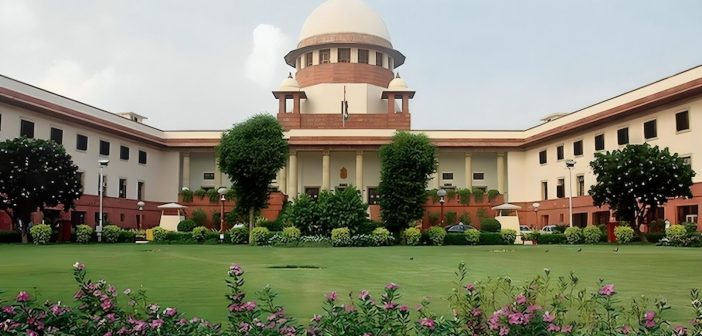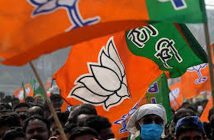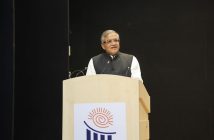In a landmark ruling, the Supreme Court has ordered the Election Commission to accept Aadhaar alongside voter ID for Bihar’s Special Intensive Revision (SIR) of electoral rolls. This SC Directive on Bihar SIR aims to ensure inclusivity ahead of the 2025 Bihar elections. However, concerns linger over voter exclusion and data privacy. Political parties are divided, with some hailing the move and others questioning its timing. What does this mean for Bihar’s voters? Dive into the details of this crucial electoral update shaking up India’s democratic landscape.
The Supreme Court’s recent directive has sparked fresh debates over Bihar’s electoral roll revision process. On July 28, 2025, the SC Directive on Bihar SIR instructed the Election Commission (EC) to accept Aadhaar cards and Electoral Photo Identity Cards (EPIC) for voter authentication during the Special Intensive Revision (SIR). This ruling comes amid concerns that the ongoing SIR could exclude millions of voters, especially marginalized groups, ahead of the November 2025 Bihar assembly elections. The court emphasized “en masse inclusion” over exclusion, addressing fears of disenfranchisement. With political parties clashing and privacy concerns rising, this SC Directive on Bihar SIR could reshape voter registration. How will it impact the Bihar SIR 2025 Electoral Roll? The nation watches as this unfolds.
Understanding the SIR Process in Bihar
The Special Intensive Revision (SIR) is a thorough update of electoral rolls. It ensures voter lists are accurate and error-free. In Bihar, the EC launched the SIR on June 24, 2025, to eliminate duplicate or ineligible voters. The process requires voters to submit specific documents to prove eligibility. The EC listed 11 documents, excluding Aadhaar, voter ID, and ration cards initially. This led to widespread protests, especially in rural areas like Seemanchal. Many voters lacked the required documents, raising fears of exclusion. Reports suggest 57% of Bihar’s 7.89 crore voters submitted forms by mid-July. However, allegations of irregularities, like booth-level officers (BLOs) forging signatures, have fueled controversy.
Supreme Court’s Intervention
The Supreme Court stepped in to address these concerns. On July 28, 2025, a bench of Justices Surya Kant and Joymalya Bagchi issued the SC Directive on Bihar SIR. They refused to stay the SIR but urged the EC to accept Aadhaar and voter ID for verification. The court noted, “Aadhaar and voter cards have a presumption of genuineness.” It criticized the EC’s focus on citizenship verification, typically a Home Ministry task. The bench stressed that no single document is conclusive proof of identity. They argued that excluding Aadhaar could lead to mass voter disenfranchisement. The court scheduled daily hearings starting July 29 to resolve the issue swiftly. Election Commission Aadhaar Directive on Bihar SIR aims to balance inclusion with electoral integrity.
Election Commission’s Stance
Initially, the EC resisted using Aadhaar, voter ID, and ration cards for SIR. In a July 21 affidavit, it argued Aadhaar is only proof of identity, not citizenship. The EC also cited widespread fake ration cards and said relying on existing voter IDs would defeat the SIR’s purpose. They listed 11 alternative documents, like passports and birth certificates, for verification. However, the SC Directive on Bihar SIR has forced a shift. The EC now accepts Aadhaar and voter ID, though it maintains these are not standalone proof of eligibility. The commission assured the court that no voter would be removed without notice and a hearing. This change aligns with the court’s push for inclusivity for the Bihar Election Voter ID Rules.
How will it impact Bihar’s Voters?
The SC Directive on Bihar SIR significantly affects voter registration. Aadhaar and voter ID are now valid for authentication. This simplifies the process for many, especially in urban areas like Patna, where Aadhaar was already accepted. However, rural areas like Seemanchal still face challenges. Many voters lack the EC’s listed documents, leading to long queues at block offices. The directive ensures voters on the 2003 rolls need only submit pre-filled forms. Those missing the August 1 draft roll deadline can submit documents until September 1. Critics warn that rushed timelines could still exclude marginalized groups, like Muslims and Dalits. The EC claims 92% voter participation, but field reports question this figure.
Political Reactions
The ruling has sparked varied responses from political parties. The Bharatiya Janata Party (BJP) supports the SIR, claiming it ensures fair elections. BJP leader Sanjay Jaiswal said, “This will clean up the voter list.” However, the Rashtriya Janata Dal (RJD) alleges the process targets opposition voters. RJD’s Tejashwi Yadav remarked, “Excluding Aadhaar risks disenfranchising millions.” The Janata Dal (United) (JD(U)) takes a cautious stance, urging transparency. Congress leader Krishna Allavaru accused the EC of acting under pressure, stating, “This timing is suspicious.” Opposition parties, including CPI and TMC, have filed petitions against the SIR. They argue it could skew the voter base before the 2025 elections. Political tensions are high as the November polls approach.
Privacy and Legal Concerns
Linking Aadhaar with voter ID raises privacy concerns. Critics argue that combining databases could lead to data misuse. The Aadhaar Act of 2016 states it is not proof of citizenship, only residency. The Supreme Court’s 2018 Aadhaar verdict limited its mandatory use for government schemes. The Meghalaya High Court recently ruled that Aadhaar cannot be the sole ID for benefits. These rulings highlight the legal limits of Aadhaar’s use. Petitioners like the Association for Democratic Reforms (ADR) warn that SIR’s strict requirements could violate voter rights. The SC’s focus on “en masse inclusion” aims to address these concerns. However, fears of surveillance and exclusion persist among activists.
National Context and Comparisons
Bihar’s SIR is not an isolated case. Other states, like Assam, have faced similar electoral roll controversies. Assam’s 2019 NRC process excluded 19 lakh people, sparking debates over citizenship. Unlike Bihar, Assam accepted Aadhaar for voter updates but faced legal challenges. Nationally, the discussion on digital identity and electoral integrity is growing. The EC’s push to link Aadhaar with voter ID began in 2022 but was paused due to privacy concerns. States like Andhra Pradesh and Telangana have experimented with Aadhaar linkage for voter verification. However, Bihar’s SIR is unique due to its timing and scale. The controversy underscores the challenge of balancing voter inclusion with preventing fraud.
Urban-Rural Divide in Implementation
The SIR process reveals an urban-rural divide. In Patna, officials accept Aadhaar and voter ID, easing registration. However, rural areas like Kishanganj and Purnia demand stricter documents, like birth certificates. This inconsistency has confused. Elderly voters like Dukhani Devi, 76, fear losing voting rights due to missing documents. Urban voters benefit from relaxed rules, while rural voters face hurdles. The EC’s clarification that forms can be submitted without documents later has helped. Yet, the short timeline and lack of awareness remain barriers. This divide highlights the need for uniform implementation across Bihar.
Challenges and Allegations
Petitioners have raised serious allegations against the SIR. The ADR and RJD claim booth-level officers are forging signatures. Reports suggest forms for deceased voters were submitted. The EC denies these claims, asserting 60% of the work is complete. Critics argue the process lacks transparency. Former EC commissioner Ashok Lavasa questioned the SIR’s timing. The opposition INDIA bloc calls it “institutional arrogance.” They fear it targets marginalized communities, risking their voting rights. The EC insists the SIR aligns with constitutional mandates. These disputes will likely influence the final electoral roll.
Looking Ahead
The SC’s directive has set the stage for a heated legal and political battle. Daily hearings from July 29 will decide the SIR’s fate. The EC must balance voter inclusion with electoral purity. The acceptance of Aadhaar and voter ID could ease concerns, but implementation challenges remain. Political parties are mobilizing voters to ensure registration. The outcome will shape the 2025 Bihar elections. Voters await clarity as the August 1 draft roll deadline looms. The nation watches whether this process strengthens or undermines democracy.
Closing Remarks
The SC Directive on Bihar SIR marks a pivotal moment for Bihar’s electoral process. By mandating Aadhaar and voter ID acceptance, the Supreme Court aims to prevent voter exclusion. However, the rushed timeline and rural-urban disparities pose challenges. Political parties remain divided, with the BJP backing the SIR and opposition parties crying foul. Privacy concerns and allegations of irregularities further complicate the issue. As the EC navigates this directive, the focus remains on ensuring fair elections. The final electoral roll will test India’s democratic resilience. Bihar’s voters await a transparent and inclusive process.




